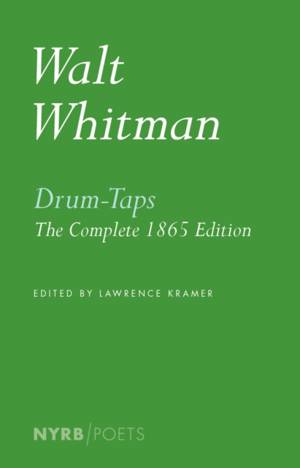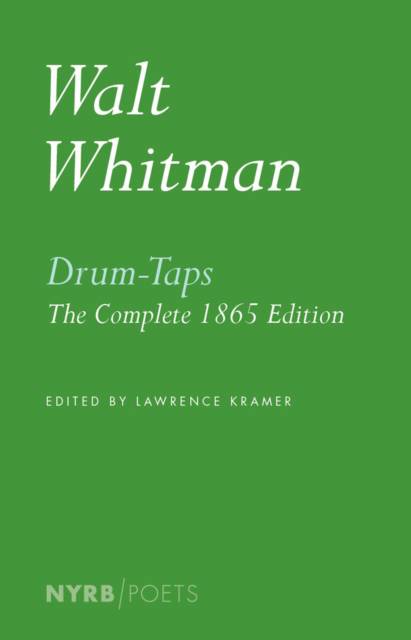
- Retrait gratuit dans votre magasin Club
- 7.000.000 titres dans notre catalogue
- Payer en toute sécurité
- Toujours un magasin près de chez vous
- Retrait gratuit dans votre magasin Club
- 7.000.0000 titres dans notre catalogue
- Payer en toute sécurité
- Toujours un magasin près de chez vous
20,95 €
+ 41 points
Format
Description
Walt Whitman worked as a nurse in an army hospital during the Civil War and published Drum-Taps, his war poems, as the war was coming to an end. Later, the book came out in an expanded form, including "When Lilacs Last in the Dooryard Bloom'd," Whitman's passionate elegy for Lincoln. The most moving and enduring poetry to emerge from America's most tragic conflict, Drum-Taps also helped to create a new, modern poetry of war, a poetry not just of patriotic exhortation but of somber witness. Drum-Taps is thus a central work not only of the Civil War but of our war-torn times. But Drum-Taps as readers know it from Leaves of Grass is different from the work of 1865. Whitman cut and reorganized the book, reducing its breadth of feeling and raw immediacy. This edition, the first to present the book in its original form since its initial publication 150 years ago, is a revelation, allowing one of Whitman's greatest achievements to appear again in all its troubling glory.
Spécifications
Parties prenantes
- Auteur(s) :
- Editeur:
Contenu
- Nombre de pages :
- 200
- Langue:
- Anglais
- Collection :
Caractéristiques
- EAN:
- 9781590178621
- Date de parution :
- 07-04-15
- Format:
- Livre broché
- Format numérique:
- Trade paperback (VS)
- Dimensions :
- 112 mm x 175 mm
- Poids :
- 181 g

Les avis
Nous publions uniquement les avis qui respectent les conditions requises. Consultez nos conditions pour les avis.






